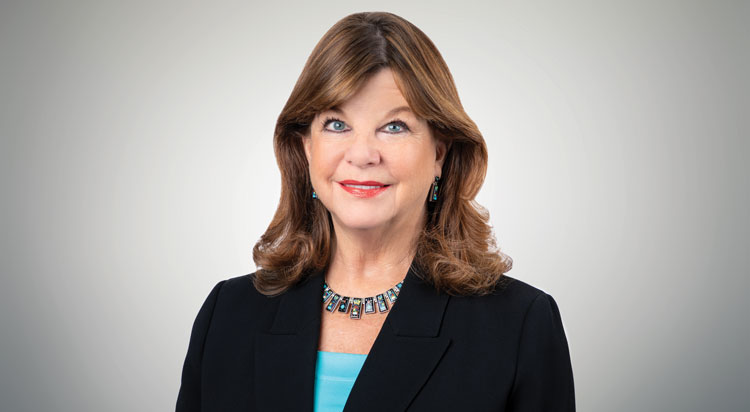Our 'calling' demands more of us as lawyers in the public square

Photo courtesy of ABA Media Relations
When we choose a career in the law, it is not about simply getting a job. It is a choice to join a learned, self-governing profession. We say a person is “called to the bar” because that is what law is—a calling.
Part of that calling involves upholding and defending the rule of law, the principle that all of us are equal in the eyes of the law and no person is above the law.
That calling should elicit behavior that puts lawyers and the profession in a positive light. We should always ask more of ourselves as lawyers because we represent our profession even when we are not “on the job.” Lawyers behaving badly reflect poorly on our entire profession.
Part of our role as lawyers is to operate in adversarial environments—to argue facts with opponents who diametrically oppose our points of view. But zealous representation of clients does not prevent us from being civil and respectful. To the contrary, vitriol, personal attacks and misstatements are among the least effective forms of advocacy.
I believe lawyers have a duty to model civility and respect in broader society and in the public square. We are bound by more than the law and professional ethics. Those called to the law should hold themselves to the highest standards of professional, public and personal behavior.
I know many—perhaps most—lawyers agree. But not all do. We have some self-examination to do as a profession. If lawyers in recent high-profile cases committed disciplinary violations by making statements they knew were inaccurate, disciplinary authorities and courts will act. But as lawyers who want to model the best of the legal profession, we must insist it is wrong for a lawyer to make a statement in the public square on a matter of public importance knowing that statement is factually untrue. Regardless of whether it is legal or ethical, it is wrong.
As lawyers, we should strive to be better than required by law and licensing requirements. Just because we can figure out a way to do something without being disciplined does not mean it is right. As 2021 ABA Medal honoree Larry Fox taught, being ethical requires more from lawyers than simply avoiding violations of the rules.
One of the lawyers I admired most was my late partner John Bouma, a giant in Arizona—and in the ABA. His record of service to clients, the organized bar and his community was unparalleled. John and I disagreed on many partisan issues. He was a fierce advocate, yet he understood that disagreeing with someone in the courtroom or on public issues of the day said nothing about that person’s character and certainly was not an excuse to attack it. John built his career making friends of worthy adversaries, standing up for justice and doing the right thing, even when he did not have to. He was the quintessential lawyer-leader.
The need for lawyers to act as leaders has never been more urgent. Who better to identify threats to the rule of law and insist they are checked? Who better to spot the miscarriage of justice and demand changes? As stewards of our justice system, all lawyers need to stand up, take responsibility and do our part, from promoting access to justice to access to the ballot.
As former U.S. Supreme Court Justice William J. Brennan said: “Lawyers must bring real morality into the legal consciousness.”
Lawyers need to reflect on the oath we have taken and our duty to take an affirmative role in mending our nation. We know the difference between right and wrong; between legally acceptable and morally defensible. We know the difference between doing our jobs and fulfilling our calling. We must always strive to lead.
Serving as your president has been the honor of my professional life. Our new president, Reggie Turner, is exactly the lawyer-leader we need now. I know you will support him as strongly as you have supported me.
This story was originally published in the August/September 2021 issue of the ABA Journal under the headline: “Lawyers in the Public Square Our ‘calling’ demands more of us.”



